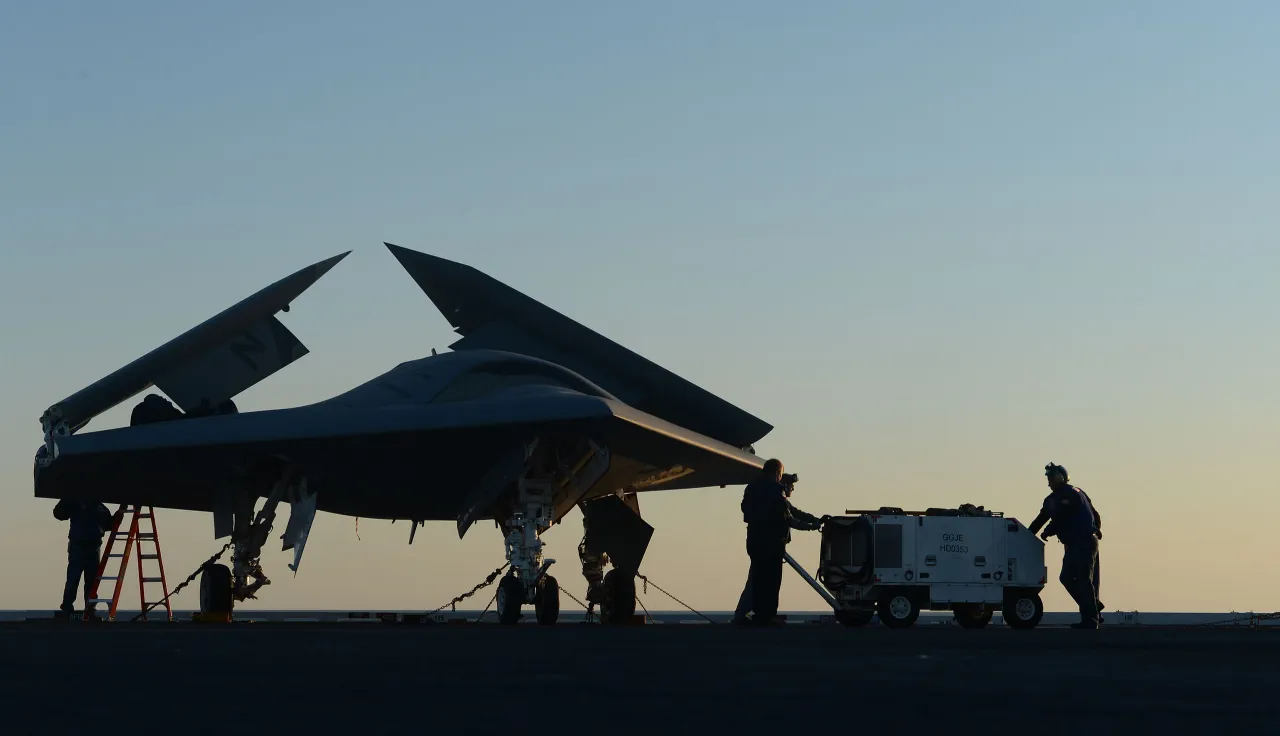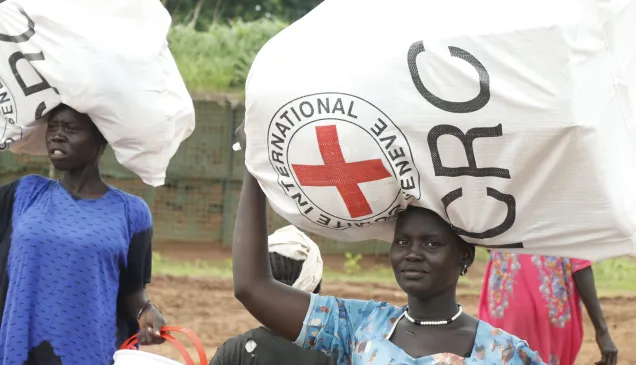Autonomous weapons: The ICRC calls on states to take steps towards treaty negotiations

Statement by the International Committee of the Red Cross (ICRC) following the final 2022 session of the Group of Governmental Experts on Lethal Autonomous Weapons Systems of the Convention on Certain Conventional Weapons (CCW) from 25 to 29 July.
Amid calls to uphold the rules-based international order, and against a backdrop of growing concerns over the humanitarian risks posed by the unfettered development and use of autonomous weapons, more and more states support the development of international, legally binding rules on autonomous weapons. The ICRC is convinced that such rules are urgently needed, and we call on states to take immediate, concrete steps at the international level to pave the way towards treaty negotiations.
Autonomous weapon systems, as the ICRC understands the term, are weapons that select and apply force to targets without human intervention. Once activated by a human, an autonomous weapon self-initiates a strike in response to information about its environment received through sensors and on the basis of a generalized target profile. The resulting loss of human control and judgement in the use of force raises serious humanitarian, legal, and ethical concerns.
To help prevent serious risks to people affected by war and address ethical concerns, the ICRC has recommended that states adopt new, legally binding rules on autonomous weapons. Retaining sufficient human control and judgement in the use of force will, in our view, require prohibiting certain types of autonomous weapon systems and strictly regulating all others.
The states party to the United Nations Convention on Certain Conventional Weapons (CCW) have been discussing questions related to emerging technologies in the area of lethal autonomous weapon systems since 2014. This year, the Group of Governmental Experts (GGE) of the CCW set out to "consider proposals and elaborate measures", taking into account the example of existing protocols to the CCW and building on past work.
The ICRC is encouraged that a growing number of states view internationally agreed limits on autonomous weapons as both necessary and feasible. Over the past months, many states have expressed support for creating legally binding rules. The draft conclusions presented at the start of last week's session reflect key areas of common ground for the GGE to build upon, in particular:
- recognition that context-specific human judgement and control over the use of force is needed for compliance with international humanitarian law
- for that reason – and, in the ICRC's view, for ethical and humanitarian reasons as well – recognition that some types of autonomous weapons must never be used
- recognition that the use of other autonomous weapons must be controlled and limited, and that concrete measures should be adopted to address the risks they pose.
Regrettably, despite various proposals put forward by states – including the development of international prohibitions and restrictions – and the tireless efforts of the Chair, Ambassador Soares Damico of Brazil, the GGE's conclusions do not reflect the seriousness of the issue and the urgent need for an international response. They neither acknowledge the specific challenges posed by autonomous weapons nor do they offer direction on effective measures to address them.
International humanitarian law must continue to evolve in order to uphold and strengthen protections for people affected by armed conflict, in step with evolving military technology and practice. The CCW was established precisely because the principles of international humanitarian law that govern all means and methods of warfare have not always proved sufficient to prevent the severe harm inflicted by some types of conventional weapons. The "need to continue the codification and progressive development of the rules of international law applicable in armed conflict" is reflected in the CCW's preamble. Ongoing efforts by the GGE to strengthen the Convention must be guided by a will to protect the lives, health and dignity of those who do not participate in hostilities, and to protect combatants from injury and suffering not justified by military necessity.
The ICRC appreciates the extensive, in-depth work carried out by the states party to the CCW over the past eight years, as well as the increasingly focused and convergent proposals on concrete options to address the risks posed by autonomous weapons. We are also heartened to see that states' positions have evolved in substance and ambition in recent years. Indeed, many states parties have already committed to advocating for a legally binding instrument, actively promoting an international prohibition of certain autonomous weapons, concretizing the rules that apply to the development and use of autonomous weapons and undertaking the necessary initiatives to regulate them internationally. The ICRC trusts that states will translate their commitment to upholding international humanitarian law and safeguarding humanity into meaningful and prompt action at the international level.
The ICRC is confident that states will find a way to craft an effective international response that is commensurate with the risks – humanitarian, legal, ethical and otherwise – posed by autonomous weapon systems. New legally binding rules on autonomous weapons are urgently needed, specifically:
- a prohibition on autonomous weapon systems that are designed or used in a manner such that their effects cannot be sufficiently understood, predicted and explained
- a prohibition on autonomous weapon systems that are designed or used to apply force against persons
- specific legal restrictions on the design and use of non-prohibited autonomous weapon systems, including to enable human judgement and control over specific attacks.



